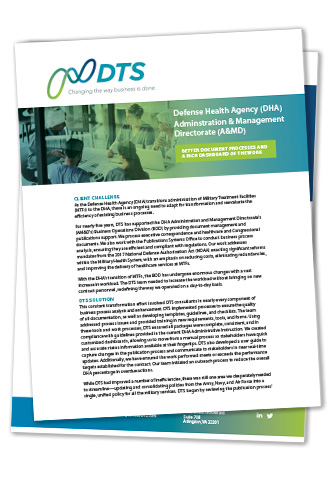It’s been almost a year since the pandemic started. The biggest change for us – like many of you – has been adopting or refining policies and tech to make a digital workplace work. Think of your digital workplace and the platforms, tools and environments you use for work now. Who would have thought we could launch widespread digital transformation in the course of a few months?
In this issue, we answer the top questions we’re hearing about the future of working from home. We also look ahead at the trends that will influence our “new normal.” Don’t miss the story on the next steps for digital transformation – and the one number you can look at right now to see how likely you are to succeed. It’s a great issue and one I hope you’ll share with others – just forward this email containing the link.
Last year, we were learning the names of our coworkers’ pets and how to use Zoom backgrounds. This year we’re learning how to use our momentum to drive even greater digital transformation. How optimistic are you feeling about your progress? What do you hope to accomplish this year? Let’s continue the conversation via email or with a call.
Edward Tuorinsky
Managing Principal
DTS
Edward.Tuorinsky@consultDTS.com
571.403.1841
What have we learned from our work from home experience?
As answered by Edward Tuorinsky and Brian Sims
For years, we’ve had an office in Arlington. The nature of our consulting work means that on any given day staff members were traveling or on-site with our clients, but our office still felt like home base. Until Covid. We ramped up remote operations pretty quickly using the tools we already had in place; however, we didn’t expect that we would still be working in guest-rooms and basements a year later. As we, like many of you, look toward a time when we could return to the office, the question remains: Should we? DTS leadership weighs in on that question and many of others we get about working from home.Will remote work become the rule or the exception?
The genie is out of the bottle. Now that we’ve proven that remote work can, in fact, get the job done, it’s going to be very difficult for organizations to repeal the policy completely. It’s also unlikely that organizations will give up their office space completely. Navigating a hybrid workforce will require new policies and some deep thinking about whether it makes dollar sense to house everyone in an office.
Is a permanent remote workforce sustainable? Is it desirable?
We know that casual interactions inspire collaboration and innovation—as social beings we feed off those exchanges. Technology has allowed us to have real-time communication even when we’re remote. In fact, many organizations are showing eye-popping gains in productivity and efficiency. So yes, working remotely, at least some of the time, is sustainable. In a USA Today poll, more than 60 percent of white-collar workers said they want to continue working from home after the pandemic and 30 percent said they would quit if forced to return to the office. That shows how much value is placed on the flexibility that work from home offers, and that the model is worthy of consideration.
What digital workplace tools and policies do we still need to figure out?
Communication can still be tricky. You can’t tell tone from a text. And its way to easy for bullies to grow bold on social. Digital technology should not be a substitute for human connection, rather an aid to help us connect. We also need to figure out how to blend physical and digital workplaces, which might have a huge impact on culture. How do we keep track of who’s in the office and who’s at home on any given day? What does our collaboration space need to look like? How should we handle new hire orientation? Since we supply food and drinks at the office, should we buy lunch for those at home? These questions and more are the ones we are now needing to figure out.
What is the impact of the digital workplace on employee well-being?
Organizations haven’t had to worry too much about their employees’ lives outside of work, but now we do. We’ll need policies to guide our expectations. With DTS staff at home, we’re seeing the need to be clear on work-life balance, managing stress, or getting in a workout. Employees can’t leave work behind them and go home to relax anymore. The dynamic has shifted. Leaders and managers need to make sure everyone is getting their work done but also being smart about how they get it done.
Trends for the Next Normal

The pandemic has forced the type of workplace experimentation that would have taken years, if not decades, to happen. This year, it’s our job to determine what works best and how to carry on. Since people are the heart of any organization, we looked to HR for the trends that will shape the future of our workplace:
- Employee Wellbeing
- Workplace Transformation
- Mental Health Investments
- Talent Mobility
- People Analytics Used to Solve Business Problems
Read the full story for details and more trends that will impact our new normal.
How to Succeed at Digital Transformation
Having to make changes in the last year reveled just how “siloed” many organizations have become. Silos for processes, technology, data, culture, strategy, structures, skill sets, and managerial mindsets. These older business models are barriers to change, and an organization with even three or four such silos has an uphill climb when it comes to digital transformation.
Research has shown, however, that the one factor that distinguishes organizations who succeed at transformation efforts: They invest early in digital talent.
Learn what happens to those who a slow to adopt digital transformation in the full article from the London Schools of Economics.
Service in the Spotlight

DTS helps organizations respond to daunting challenges, like digital transformation. We are poised to help federal agencies move through the final steps of transformation, eliminating paper and rethinking processes, ensuring cybersecurity, and embracing digital technology. We understand that for many this fundamental change can be difficult, with deep roots in culture. Our modular process, which begins with fast fixes and early wins, helps ease bigger shifts and inspire stakeholders. We help drive productivity and agility while improving both the customer and employee experience. Want to know more? Read our Defense Health Agency case study.
CMMC News
DTS continues to follow CMMC updates very closely, and commits to providing this information to our clients in plain language, with actionable take-aways.
NEWS:
- The CMMC Pilot Program (Year 1 CMMC Contracts) will include contracts from:
Army, Navy, Air Force, Missile Defense Agency, Defense Logistics Agency - The Office of the Undersecretary of Defense for Acquisition and Sustainment (OUSD (A&S)) is exploring opportunities to pursue CMMC pilots outside of the DoD to include: GSA, DHS, and possibly the Department of Interior
DTS RECOMMENDS: CMMC is still a DoD program but they are “welcoming participation” from other agencies. This news makes it even more of an imperative for contractors to have a long-term cybersecurity strategy in place – AND to forecast and budget for continuous upgrades and training to mature their practices. Until October 1, 2025, CMMC requirements will only be included in new acquisitions with the approval of OUSD(A&S)/OCISO(A&S).
Read all current News and Recommendations.
In the News
If you’ve been thinking about how to navigate challenges this year, the answer might be rooted in your values. Forbes recently featured an article by Edward Tuorinsky, Forbes Councils Member titled Three Values That Will Define Successful Leaders In 2021.About DTS
DTS consultants go far beyond just “getting the job done.” We continually find better, more efficient and more effective ways to satisfy the needs of our public- and private- sector clients. DTS provides full lifecycle Management and IT consulting services, and can support your organization by researching and answering specific questions, solving critical issues or helping you plan for the future. Among a crowded field of contractors, DTS stands out for the quality of our people, the power of our approach, and the impact of our results. www.consultDTS.com
Continue the conversation:
Email sales@consultDTS.com or call 571.403.1841


